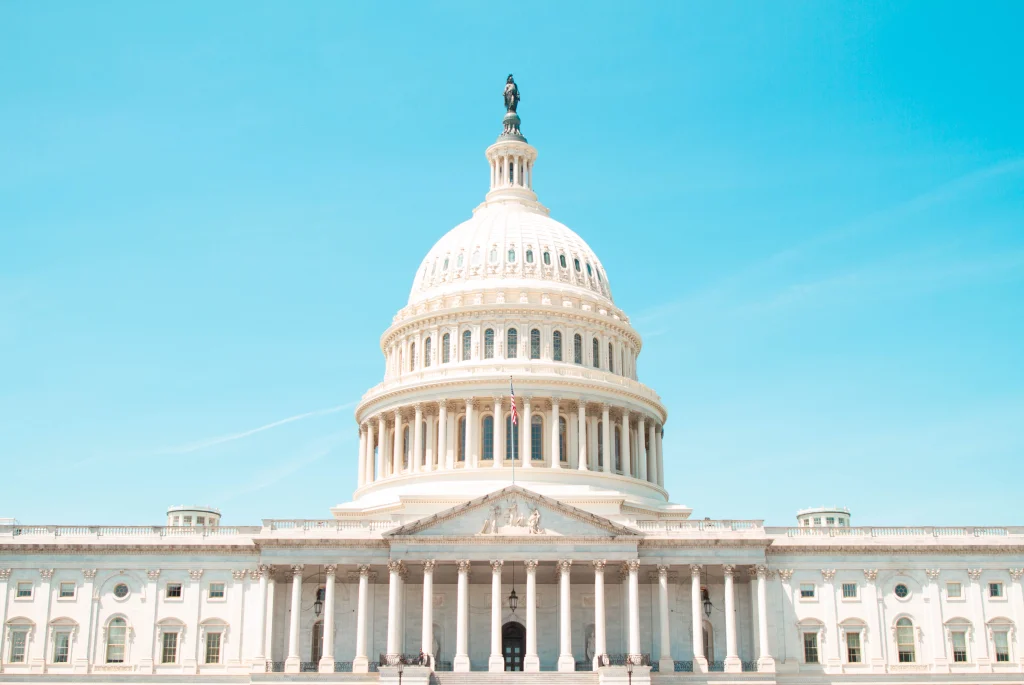I tried everything I could think of to get the issue with Medicare resolved, but at the end of the day, a simple coding issue prevented me from getting the care I needed for my back for entirely too long.

Medicare Advocacy and Recovery Coalition

MARC is dedicated to improving the Medicare Secondary Payer (MSP) Program.
MARC is committed to ensuring MSP stakeholders and beneficiaries are not burdened with archaic MSP laws.
MARC has a clear and proven track record of legislative success on Medicare Secondary payer issues.
MARC’s 2023 legislative priority – Repair Abuse of MSP Payments (RAMP) Act – Repeal MSP Private Cause of Action.
POLICY PRIORITIES
MARC strives to ensure that all stakeholders affected by the federal Secondary Payer law can work within an efficient and comprehensive statutory and regulatory system that provides timely resolution of disputes and the fair reimbursement of Medicare beneficiary claims involving secondary payer issues.
To achieve this mission, MARC’s 2025 policy priorities are focused on the following issues:
- Repeal MSP Private Cause of Action:
Pass and Enact the Repair Abuse of Medicare Secondary Payer (MSP) Payments (RAMP) Act Legislation - Treasury Offset Program (TOP):
Resolve the Critical Flaws in the TOP Program. - Ongoing Responsibility to Pay for Medicals (ORM):
Reform Section 111’s Ongoing Responsibility to Pay for Medicals (ORM) - Future Medicals in Liability Cases:
Advocate for CMS to recognize settling parties’ fair voluntary allocation of personal injury and other liability action settlement funds to provide certainty for beneficiaries


ABOUT MARC
The Medicare Advocacy Recovery Coalition (MARC) is a national Coalition advocating for the improvement of the Medicare Secondary Payer (MSP) programs.
The Coalition is dedicated to building collaborative partnerships and strategic alliances with beneficiaries, affected companies, and a wide range of other stakeholders to work with the Congress and government agencies to recommend solutions and implement MSP reforms that will improve the process for all, especially Medicare beneficiaries.
MARC was formed in 2008 by industry leaders who saw a critical need to improve the failing MSP system. Since the Coalition’s inception, MARC has been instrumental in achieving legislative and regulatory reform on important MSP issues. Learn more about MARC’s policy accomplishments.
MARC’s membership represents virtually every sector of the MSP regulated community, including plaintiffs and defense attorneys, brokers, insureds, insurers, insurance, and trade associations, self-insureds, and third-party administrators.
Tell Us Your Story
Medicare Beneficiaries Impacted by Medicare Secondary Payer (MSP) Laws
The MSP system is broken, and Medicare patients are often left hanging in the balance. If a Medicare beneficiary is injured and another entity is required to pay for their healthcare expenses – such as in a tort case, workers compensation claim, or auto insurance payment – there can often be significant disruptions in the future of that person’s medical care. For example, someone injured in an auto accident could have Medicare deny coverage for an unrelated surgery years later.
- Have you struggled to have Medicare claims paid after settling a workers compensation case?
- Did you get reimbursed after an accident, then struggle with Medicare on a future claim?
- Have you been denied coverage by Medicare after being reimbursed from an automobile injury?
If you are a Medicare beneficiary and any of these issues occurred with your Medicare claim, please tell us your story. Your personal experience will help MARC advocate for positive change and seek much needed MSP reform on Capitol Hill. We will not use your identifying information without your consent.
Story Highlight

Contact MARC
If you are interested in learning more about MARC or have any questions about our organization, please contact us
LATEST NEWS
RAMP Act Introduced in United States Senate
Feb 10, 2026
February 10, 2026 (Washington, DC) Today, the Medicare Advocacy and Recovery Coalition (MARC) announced that the Repair Abuses of MSP Payments Act (RAMP Act, S. 3816), was introduced in the United States Senate by Senator Tim Scott (R-SC) and Senator Maggie Hassan (D-NH). This follows its introduction in the U.S. House of Representatives (H.R. 4056) last summer […]
Read ArticleMARC Coalition Announces 2026 Executive Committee
Dec 18, 2025
December 18, 2025 (Washington, DC) – This week, the MARC Coalition, a national coalition advocating for the improvement of Medicare Secondary Payer (MSP) programs, announced their Executive Committee for 2026. MARC’s Executive Committee consists of a Chair, Vice Chair, Secretary/Treasurer, and At-Large members. The officers are elected to 2-year terms, and At-Large members are elected to a […]
Read ArticleMARC Coalition Hosts Webinar to Discuss the CMS ORM program
Nov 17, 2025
November 17, 2025 (Washington, DC) – The MARC Coalition today hosted a webinar about the CMS ORM program at 1:00pm ET. Presenters included David Farber, Partner at King and Spalding and Brian MacAllister, Senior Medicare Unit Manager – Managed Solutions at Liberty Mutual. Approximately 60 people attended the public webinar, including MARC members and industry stakeholders. […]
Read ArticleMARC Announces Introduction of the RAMP Act in 119th Congress
Jun 20, 2025
Washington, DC (June 20, 2025) Today, the Medicare Advocacy and Recovery Coalition (MARC) celebrated the introduction of the Repair Abuses of MSP Payments Act (RAMP Act, H.R. 4056), introduced in the U.S. House of Representatives by Representative Gus Bilirakis (R-FL) and Representative Brad Schneider (D-IL). The legislation advocates for modernizing the broken and outdated MSP “private cause […]
Read ArticleMARC Coalition Sends Letter to CMS Regarding MSA Reporting Concerns
Jan 23, 2025
January 23, 2025 (Washington, DC) – The MARC Coalition today sent a letter to the Center for Medicare and Medicaid Services urging the Agency to reform its proposal to require entities settling claims with Medicare beneficiaries to report any “Medicare Set Aside” or MSA arrangements as part of the Section 111 process. The letter requested clarification […]
Read ArticleMARC Coalition Hosts Webinar to Discuss Section 111 Civil Money Penalties
Oct 28, 2024
October 28, 2024 (Washington, DC) – The MARC Coalition today hosted a webinar about Section 111 Civil Money Penalties at 2:00pm ET. David Farber, Partner at King and Spalding, and Susan Lin, Divisional AVP – Corporate Claims, Medicare Strategy at Great American Insurance Group, were the presenters. The hour-long webinar featured a presentation to discuss the […]
Read ArticleMARC Celebrates Bicameral and Bipartisan Introduction of the RAMP Act in Congress
May 17, 2023
Washington, DC (May 17, 2023) Today the Medicare Advocacy Recovery Coalition (MARC) applauded Senators Tim Scott (R-SC) and Maggie Hassan (D-NH) and Representatives Brad Schneider (D-IL) and Gus Bilirakis (R-FL) for introducing the Repair Abuses of MSP Payments Act (RAMP Act, S.1607/H.R.3388) in the U.S. Senate and the U.S. House of Representatives, respectively.
Read ArticleLetter to CMS ORM
Mar 24, 2023
The MARC Coalition recently submitted a letter to the Center for Medicare and Medicaid Services, outlining three specific requests for how the ORM program could be reformed in a beneficial manner for all stakeholders.
Read ArticleMedicare Advocacy Recovery Coalition (MARC) Urges Beneficiaries to Support Legislative Reforms to Improve Medicare Secondary Payer (MSP) Program
Feb 22, 2023
WASHINGTON, DC – February 22, 2023 – Established in 2008 with a mission to improve the Medicare Secondary Payer (MSP) program, the Medicare Advocacy Recovery Coalition (MARC) has unveiled a new website aimed at improving their critically important work.
Read ArticleThe PAID Act is Now the Law
Dec 11, 2020
The Medicare Advocacy Recovery Coalition (MARC) thanks the Congress for passing the PAID Act (H.R. 1375, Section 1301 of H.R. 8900) on December 11, 2020. The bill was brought to the House Floor and passed by voice vote on December 8, 2020.
Read Article
JOIN MARC
MARC is the leading Washington-based advocacy coalition focused on legislative and regulatory initiatives to reform federal secondary payer programs and policies. Coalition membership is open to any organization impacted by the Medicare secondary payer laws.
Current membership includes retailers, insurers, attorneys, brokers, insureds, trade associations, self-insureds and third-party administrators.
MARC members participate in Secondary Payer policy decision-making at the federal level and receive the most current and up to date information about new developments in the area. Members establish the policy direction of the Coalition and are active participants in meetings with Congressional leaders and government officials on behalf of MARC